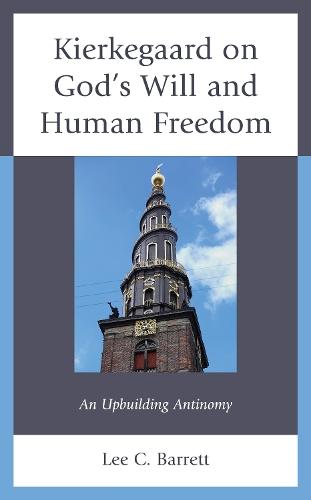Overview
Søren Kierkegaard’s authorship exhibits two different trajectories concerning the relation of responsible human agency to sovereign divine agency: one trajectory stresses free human striving, while the other trajectory emphasizes the dominance of divine agency. The first theme led to the view of Kierkegaard as the champion of autonomous existential “leaps,” while the second led to the construal of Kierkegaard as a devout Lutheran who trusted absolutely in God’s gracious governance. Lee C. Barrett argues that Kierkegaard, influenced by Kant’s critique of metaphysics, did not attempt to integrate human and divine agencies in any speculative theory. Instead, Kierkegaard deploys them to encourage different passions and dispositions that can be integrated in a coherent human life, making use of literary strategies to foster the different passions and dispositions that are associated with the themes of human responsibility and divine governance. Kierkegaard on God’s Will and Human Freedom: An Upbuilding Antinomy offers an incisive account of what makes Kierkegaard’s conception of theology as a matter of edification rather than speculation so distinctive and enduringly worthwhile.
Full Product Details
Author: Lee C. Barrett, III
Publisher: Lexington Books
Imprint: Lexington Books/Fortress Academic
Dimensions:
Width: 15.90cm
, Height: 2.40cm
, Length: 23.90cm
Weight: 0.522kg
ISBN: 9781666914924
ISBN 10: 1666914924
Pages: 224
Publication Date: 11 December 2023
Audience:
Professional and scholarly
,
Professional & Vocational
Format: Hardback
Publisher's Status: Active
Availability: Manufactured on demand

We will order this item for you from a manufactured on demand supplier.
Reviews
One of our most trustworthy guides into Søren Kierkegaard offers here a thick description of the Dane’s struggle with the tensive valorization of divine and human agency. Exhibited in the process is Kierkegaard’s rhetorical style of doing theology that privileges practical reason over theoretic reason while emphasizing the necessary involvement of certain forms of passion, disposition, and virtue within religious practice. Readers will be grateful for this refreshing portrayal of Kierkegaard as theologian. -- Curtis L. Thompson, Thiel College If you understand how Kierkegaard navigates the problem of grace and freedom, there is a sense in which you understand his approach to Christian writing as such. On this subject, there is no better guide than Lee Barrett. This book situates Kierkegaard’s treatment of the will against the backdrop of previous debates and, even more importantly, models how to read him well. -- Carl S. Hughes, Texas Lutheran University
Author Information
Lee C. Barrett is the Henry and Mary Stager Chair in Theology and professor of systematic theology at Lancaster Theological Seminary.




